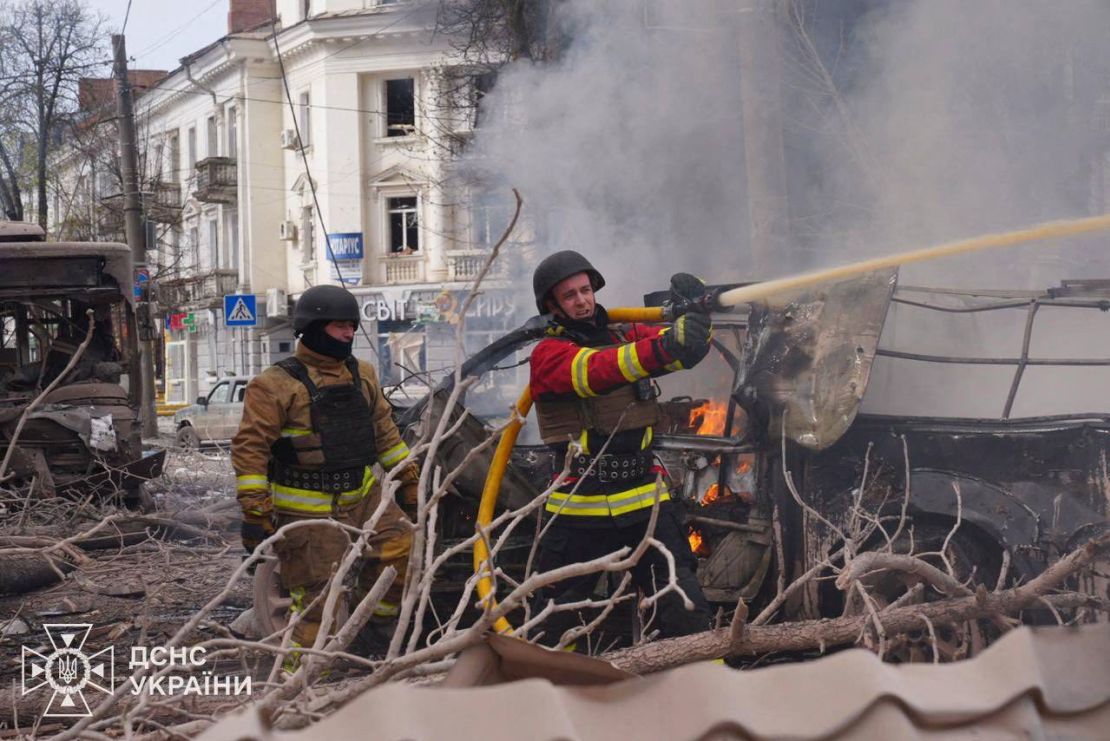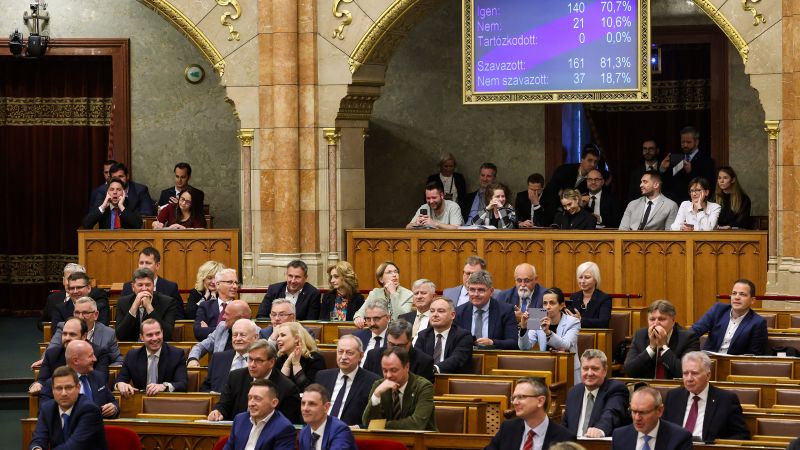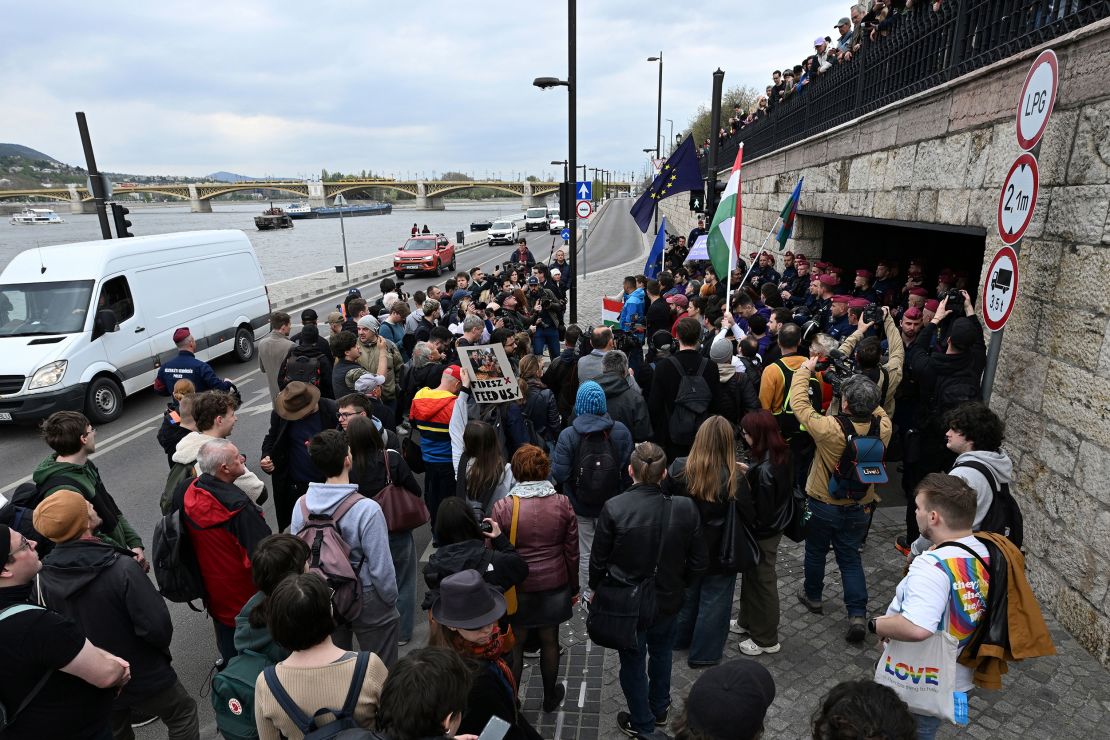CNN
—
Russian missiles hit the northeastern Ukrainian city of Sumy in the deadliest attack this year, killing at least 32 people, including two children, as residents gathered for Sunday church services, local authorities said.
At least 99 people, including 11 children, have also been wounded in the strikes on the city’s center, according to the Interior Ministry of Ukraine, making it the worst single attack on Ukrainian civilians since 2023.
Last week, a Russian missile attack killed 20 people in the central city of Kryvyi Rih.
Zelensky said the deadly strikes on Sumy were carried out by ballistic missiles and called for a “strong response from the world” in a statement.
“Russia wants exactly this kind of terror and is dragging out this war,” he said. “Without pressure on the aggressor, peace is impossible. Talking has never stopped ballistic missiles and bombs. We need to treat Russia as a terrorist deserves.”
The strikes hit the city center on Palm Sunday as residents were attending church services on one of the busiest church-going days of the year, according to Ukraine’s Economy Minister Yulia Svyrydenko.
Two ballistic missiles were fired by Russia into the city center, said Volodymyr Artyukh, head of the military administration in the region. “At that time, a lot of people were on the street,” he said.
“The enemy was hoping to inflict the greatest damage on people in the city of Sumy.”
Ukrainian officials said that preliminary information indicates cluster munitions were used in the attack. They contain multiple explosives that are released over a wide area – up to the size of several football fields – and are particularly dangerous to civilians when fired near populated areas.
“A missile with cluster munitions is something Russians do to kill as many civilians as possible,” said Andriy Yermak, head of the Ukrainian president’s office, calling the strike a “deliberate targeting of civilians.”
A video posted by Interior Minister Ihor Klymenko shows firefighters responding at the scene, putting out cars on fire and evacuating a woman from her home. Among the destruction seen in the city center are destroyed buildings, blown-out windows and piles of rubble. Bodies covered in emergency blankets can be seen on the ground.
Ukraine’s Foreign Minister Andrii Sybiha called it “absolute evil” to launch the attacks on a Christian holiday and noted that the missiles hit a residential area of the city.
“We urge partners to provide Ukraine with additional air defense capabilities and increase pressure on Moscow,” Sybiha said in a statement posted to X. “Strength is the only language they can understand and the only way to put an end to the horrific terror.”
CNN has verified social media videos of the moment the strike hit Sumy. A loud noise can be heard as large plumes of black smoke rise in the air.
Video shared by the region’s military administration also registers a loud boom, showing the moment a Russian missile hit a building. Emergency sirens can be heard as people run in panic, while others can be seen lying on the ground.
The face of one woman being helped is covered in blood in a different video shared by Zelensky. Footage also shows body bags on the ground and a blown-out trolleybus that appears to have bodies inside, as emergency workers respond to the attack.
Artyukh, the head of the military administration, later said that most people on the trolleybus were killed.

The Trump administration’s special envoy to Ukraine and Russia Keith Kellogg said the attack “crosses any line of decency.”
“As a former military leader, I understand targeting and this is wrong. It is why President Trump is working hard to end this war,” Kellogg said in a statement.
Kaja Kallas, the European Union’s foreign policy chief, called the incident a “horrific example of Russia intensifying attacks while Ukraine has accepted an unconditional ceasefire.” French President Emmanuel Macron also reacted saying “strong measures” are needed to impose a ceasefire.
“It’s been two months since Putin ignored America’s proposal for a full and unconditional ceasefire,” Zelensky said in a statement on Sunday, referring to Ukraine’s acceptance of a 30-day ceasefire proposed by the United States in March, which Russia refused.
On Friday, top Trump administration official Steve Witkoff met with Russian President Putin for more than four hours.
President Donald Trump weighed in on the talks the following day. “I think Ukraine-Russia might be going OK. And you’re going to be finding out pretty soon,” Trump said. “You know, there’s a point at which you have to either put up or shut up. We’ll see what happens, but I think it’s going fine.”
Following Sunday’s attack, Zelensky reiterated the need to end the war, saying Moscow is “confident” it can afford to keep killing.
“We need to put pressure on Russia to end the war and guarantee security for people,” Zelensky said. “Without really strong pressure, without proper support for Ukraine, Russia will continue to drag out this war.”
The UN’s Humanitarian Coordinator for Ukraine Matthias Schmale condemned the strike on Sumy’s city center “in the strongest possible terms” and noted that international humanitarian law “strictly prohibits attacks against civilians and civilian infrastructure.”
Russia has increased air attacks and missile strikes on the Sumy region in recent weeks as it has pushed Ukrainian forces out of much of the adjoining Russian territory of Kursk. Its forces have also occupied a few small settlements just inside the Sumy region.
Over the past 24 hours, other Russian attacks in Ukraine’s Donetsk, Kharkiv and Kherson regions killed eight people and left at least 18 injured.
This is a developing story and will be updated.


























